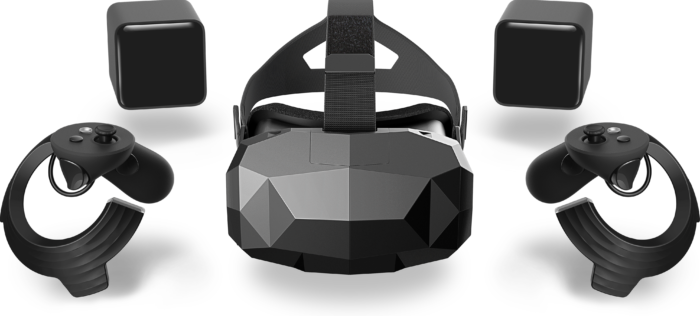Press release: IDC Expects Blossoming Gaming Market in China Including VR Systems and Consoles
BEIJING – According to the IDC China Gaming Market Forecast Analysis 2016-2020, the number of gamers in China reached 530 million in 2015, which is 1.7 times that of the entire U.S. population. IDC expects this number to grow by 4.5 percent in 2016. This increase is seen as a driver for growth in VR systems and consoles.
China’s gaming market, defined by IDC as both software and consoles, reached sales revenues of $21 billion in 2015.
“Given the huge size and potential of the China gaming market, China is likely to take the lead for VR systems in the coming year,†says Neo Zheng, Research Manager of IDC China.
“More consumers are also willing to pay for games now, given the lower cost of games, especially those available via app, as compared to the past, and this has helped to address the issue of piracy in China. In terms of gender proportion, males make up about 68 percent of total gamers, although the proportion of female players have been increasing across the years,†adds Zheng.
China Joy, one of the largest digital entertainment expos in China, took place earlier this month, with more than 300,000 number of visitors in attendance. These are some of the highlights from the China Joy event:
Increase in the number of VR vendors
The number of VR vendors have increased, clearly exceeding the number of VR vendors in other countries. Chinese vendors such as Deepoon, 3Glasses and Inlife-Handnet, all shipped VR systems in the first quarter of 2016.
The stiff competition has helped to push the improvement in the quality of both the hardware and software for VR systems.
Chinese vendors have also been exploring the use of VR systems in different industries, and this will help them to take a lead in the VR trends globally.
There were also many VR vendors and game developers present that displayed their VR games, and VR booths were a huge hit with consumers, with some booths requiring a having a two hour wait to test out the VR games.

Hypereal is a Chinese vendor that attracted a lot of media attention as it had a product that was similar to HTC Vive and Oculus that provided a very good VR experience.
Improvement in the quality of VR systems
Hardware vendors have improved the resolution of their products as well as the refresh rates. Content providers have also taken steps to provide better content than before.
They have started to base their games on content that is popular in China to help these games to take off. An example includes a game that is based on a popular science fiction book titled “The Three Body Problem,” which is a big hit in China.
VR experience pods
Egg-shaped chairs and sports equipment helped to spice up the event. Similar equipment can also be found in the VR experience locations in China.
Consumers can now walk in to these VR outlets to play various games that are available on VR systems. In the past, customers needed to head to an amusement park for such an experience but this can now be found in the streets of China where there are now about 4,000 stores found in the country.
Growth expected for consoles
Sony announced the launch of the Chinese edition of the PlayStation VR a day before the China Joy event. Given its low cost and large offering of games, this may alter the outlook for VR systems in the consumer market in the second half of the year.
While Sony is focused on consoles alone, Microsoft plans to make games on its Xbox available on PCs as well in the future.
This is likely to attract attention from Chinese gamers. Although PC gamers may not purchase the Xbox console based on this, the likelihood of them registering on the Xbox live platform and purchasing Xbox games on PCs are high. In 2015, the number of consoles shipped was less than 600,000.
The growth of gaming consoles has been slow in the past, since they were banned for the longest time in China. Even after the ban was lifted, many vendors found it hard to enter the China market as they were not able to comply with China’s policies, which affected the growth of gaming consoles in China due the lack in the number of games that were available in the Chinese market.
Given the limited options that were offered through consoles, PC-focused massively multiplayer online role playing games were more popular in China as the Chinese also enjoyed playing games where they can interact with other players.
More international companies plan to work with the local Chinese vendors to bring in more attractive games to the market. IDC expects the number of consoles to double that in 2015 to grow to more than a million in 2016.
About IDC
International Data Corporation (IDC) is the premier global provider of market intelligence, advisory services, and events for the information technology, telecommunications, and consumer technology markets. With more than 1,100 analysts worldwide, IDC offers global, regional, and local expertise on technology and industry opportunities and trends in over 110 countries.
- Major companies to discuss metaverse plans at December conference - August 22, 2023
- OpenSim Community Conference starts today - December 11, 2021
- Ninth Annual OpenSimulator Community Conference set for December - October 18, 2021
